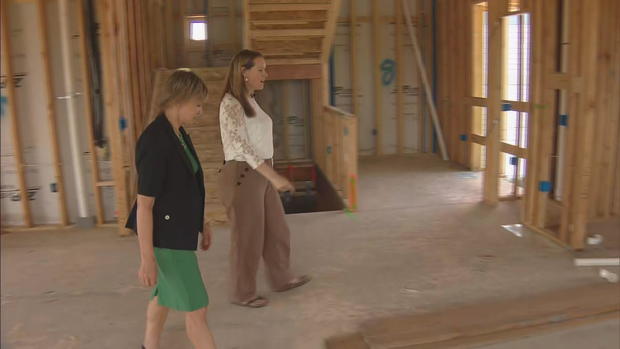Affordability and availability of insurance in Colorado may depend on fire-hardening your home
As temperatures heat up across Colorado so too does wildfire danger, and firefighters aren’t the only ones tracking that danger closely — so is the insurance industry.
Some insurers are already pulling out of Colorado and rates are doubling and tripling across the state because of wildfire danger.
Experts say Colorado is at a crossroads. If we don’t take steps to lower our risk — through mitigation and fire hardening of homes — they say the availability and affordability of insurance will only get worse.

Marshall Fire survivors like Tawnya Somauroo are leading the way, “We have a fire-resistant roof; we have fire-resistant walls; we have fire-resistant decking, we will have.”
A former aerospace engineer and current patent attorney, she is innovative by nature. So when her house was destroyed by the Marshall Fire, she was determined to do what she could to prevent it from happening again, “We have windows that are tempered double pane, and we have vents to cover … to keep the embers out, and we will have covers on our gutters, and it actually doesn’t cost that much upgrade to do all these things.”
She didn’t stop at her house. Somauroo talked to her neighbors who followed her example, “It makes us feel safer; it really does.” That’s why she invited some of the nation’s leading experts on fire hardening to the state to help spread the word. They toured parts of the Marshall Fire burn scar, where many homeowners are fire hardening.
Jennifer Gray Thompson with After The Fire, an organization that helps communities rebuild after megafires, says we should all follow their lead, “If you’ve not yet been affected by a climate disaster, you can pretty much be very well assured that over the next decade to two decades you absolutely will be. Really, the consumers have to really change their entire mindset about how we live.”
It’s not just about wildfire risk but insurance rates, “You got double triple whammies coming every directionm” said Julie Shiyou-Woodard with Smart Home America. Her organization advocates for resilient building codes, and she says community-wide change is key.
“There are communities in the United States that suffered catastrophic losses, same uncertainty. But … the community and state working together, and working to really revamp codes and policy in that state flipped those markets,” Shiyou-Woodard said.
For Somauroo, it’s about preparing for the worst, “Saying something can never happen is a bit of a thought trap. I think it’s worth doing for the peace of mind and for keeping your community insurable.”
Thanks in part to Somauroo and her neighbors, the legislature created a grant program this year to help with fire hardening for the first time ever. The legislature also created a wildfire resiliency board to come up with a building code for areas in the wildland urban interface. The code is expected to take effect July of 2025.
The federal Inflation Reduction Act also includes grant money to help with resilient building.
